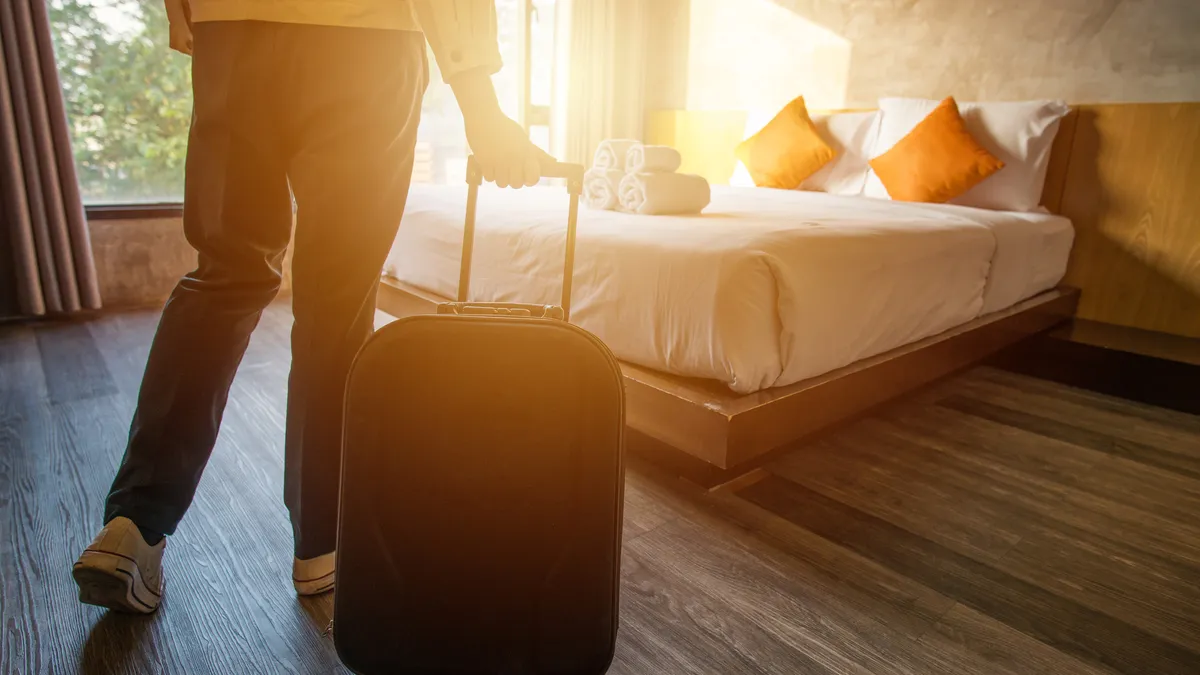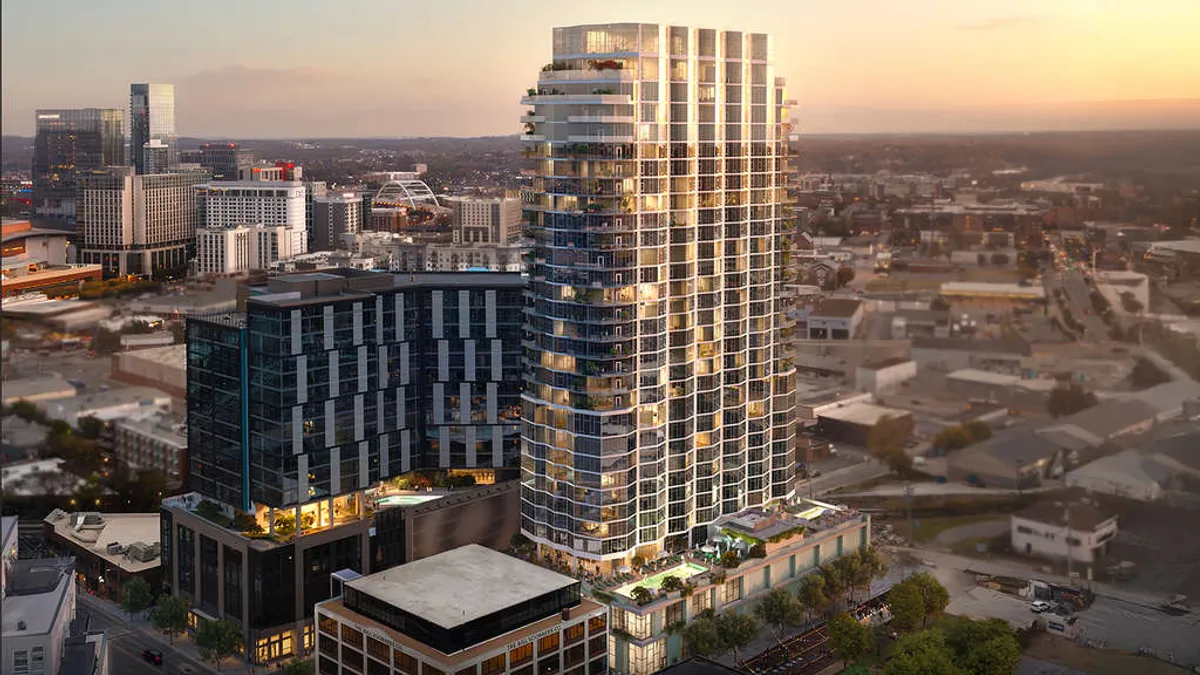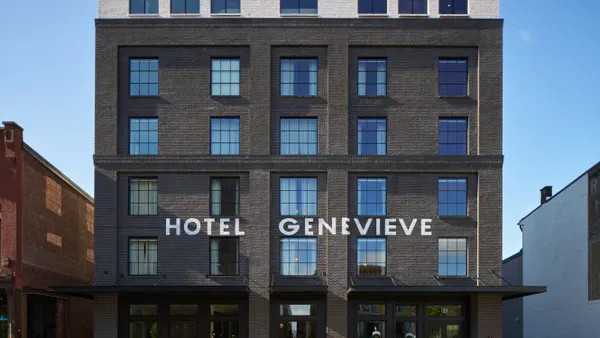Dive Brief:
- Travelers will seek unusual, immersive experiences in 2024 and beyond, according to Design Hotels’ inaugural Further Forecast, which analyzed developments across the hospitality, art, design and technology industries to uncover trends shaping travel.
- The forecast explored how concepts like AI tech, psychedelic travel and healing escapes, indigenous rituals and knowledge, multigenerational travel, nature-inspired design and sustainability will impact the future of hotel design, programming and operations.
- The trends point toward travelers setting stricter digital boundaries as they seek tactile, meaningful activities and low-stimulus experiences. Hotels that offer “transformational or out-of-the-ordinary” experiences will be better positioned to succeed in what the report dubs the “Age of Awe.”
Dive Insight:
Design Hotels’ inaugural Further Forecast, created in partnership with SOON Future Studies, surveyed 1,789 Design Hotels’ community members in June as well as conducted interviews with industry thought leaders from companies such as Microsoft, teamLab, SPACE10, Beckley Retreats and Bompas & Parr.
“While algorithmic curation and AI-driven convenience is speeding up innovation in the travel sector, a more human-centric approach to healing, community, and dining is slowing down our drive to be it all, and see it all,” the report found.
Post-pandemic, 63% of people are willing to invest more money in “transformational or out-of-the-ordinary travel experiences,” not cookie-cutter trips, according to Design Hotels’ survey data.
This “Age of Awe,” as the report dubbed it, dovetails with another trend among travelers: unique, next-level wellness experiences, such as the Six Senses Alma Festival in Ibiza, which comprises three days of spiritually infused events and workshops, or the Rockhouse Hotel in Jamaica, where guests can take part in a weekly psilocybin sound bath that includes an optional microdose in the form of a chocolate bar.
More hoteliers are also bringing the past into the present, the report noted, such as turning a Mayan ritual into a spa treatment or incorporating ancient artifacts found on site — like bottles and glass fragments — into the hotel’s construction, as was done at La Purificadora in Mexico.
The report also predicted that more hotels will adhere to biophilic design principles that blur the boundaries between internal and external living spaces by integrating into the natural environment.
Among the macro- and micro-trends explored in the report, some, like generative AI, stood out in terms of their impact on the hotel industry. In an interview published within the report, Shane O’Flaherty, Microsoft’s global director of travel, transportation and hospitality, said that the tech can ultimately help enable a hotel to connect with its guests more effectively.
“I think that one of the big challenges in the world, and especially in the travel space, is labor. Today, hotels have to do more with less. How can they really embrace technology for their frontline workers to allow them to do more with less?” he said, adding that “the goal is to get rid of the mundane tasks and to minimize or eliminate paper in the hotel,” allowing employees to focus on the guest experience.








